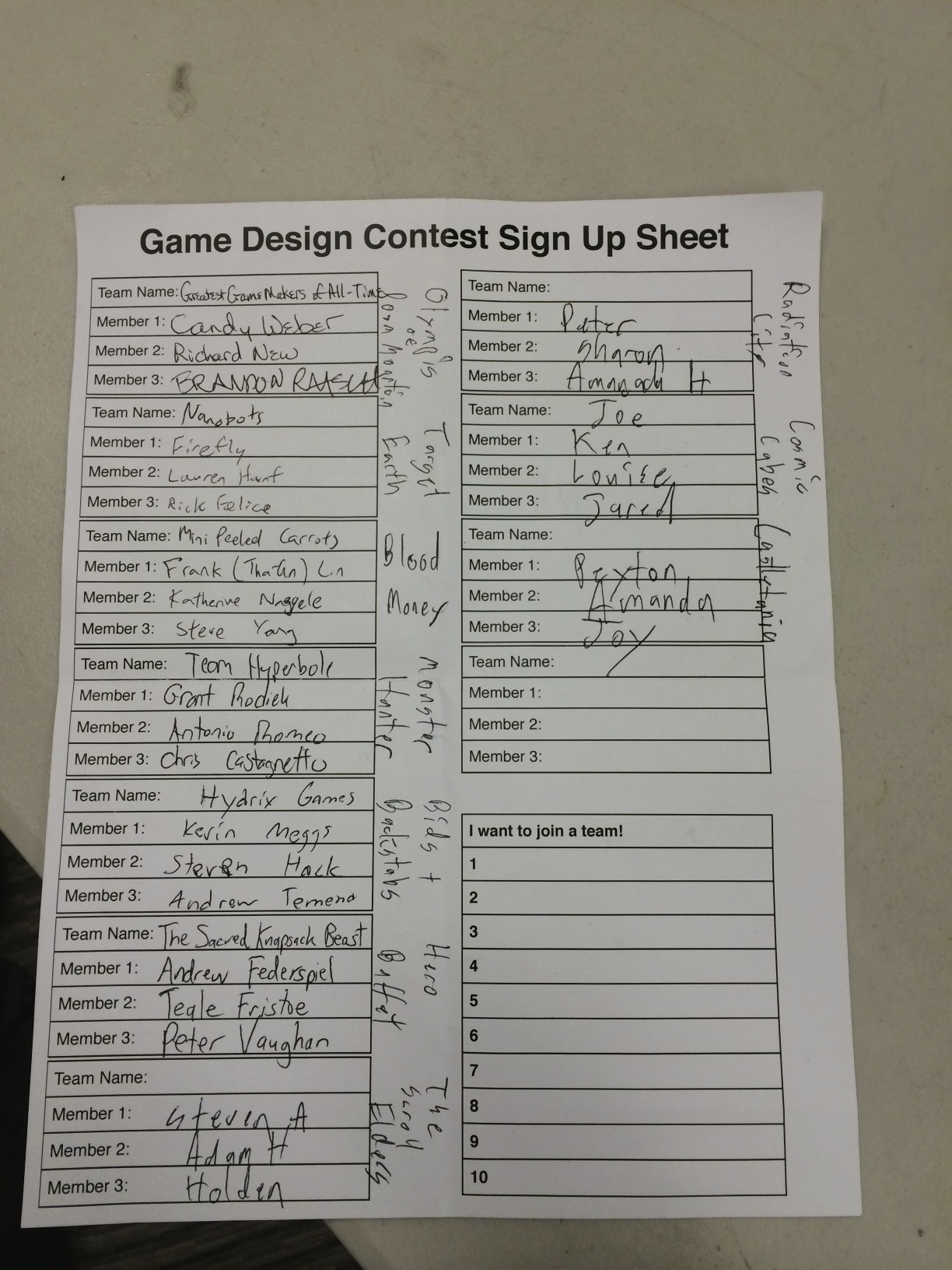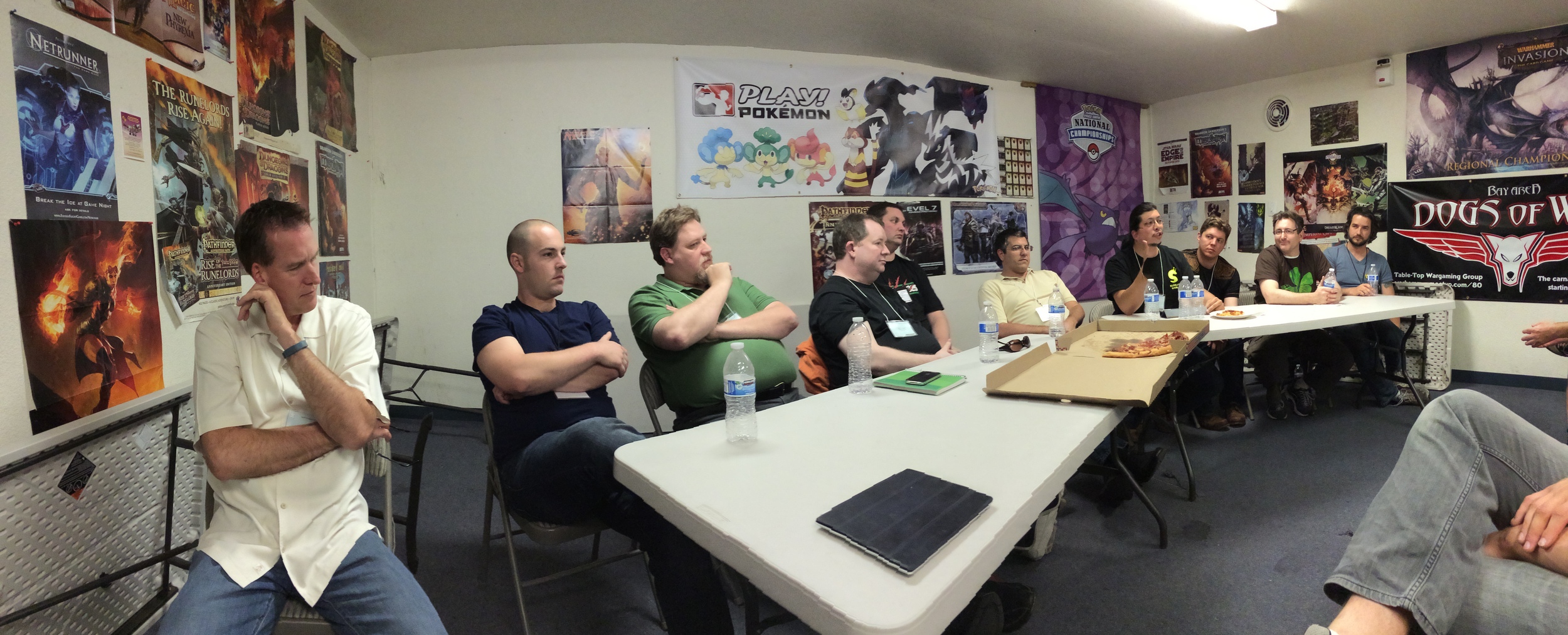I wanted to address some questions and concerns I got after the event and provide some insight into the process.
Why didn’t you provide feedback forms?
Because not all designers use paper feedback forms. Many designers make their own forms with specific questions or custom metrics they are looking to measure. I had a half dozen printed feedback forms on hand just in case somebody forgot theirs or panicked and asked for help.
Why should I even bother to use paper feedback forms? Whats wrong with verbal feedback?
This is a great question. I’m going to quote Candy Webber here “I find that people are a lot more honest on paper they they are verbally.” This is true.
I highly suggest you use a paper feedback form. I personally like the Unpub form, it is great to start with. I would also encourage you to use your smart phone to record audio feedback or the discussion after your game. Being able to review comments, tone of voice, and suggestions in a less hectic environment is immensely useful.
Why didn’t you provide a public registry with names and contact info for designers and industry guests? Many academic conferences do this.
Some of our guests and designers are very guarded with their contact info. Many publishers don’t want to get spammed by a bunch of designs that they saw at the event and passed on. Several people asked me to keep their contact information private.
Next time, I will offer an opt in directory of names and contact info. This will give people the option of sharing their contact info, but contact info will remain private by default.
Why didn’t you provide a orientation email?
I just didn’t have enough time/help to pull that off. An orientation email is a good idea and I intend to do that next time.
The orientation email include:
1. How to opt-in to the public contact list.
2. A notice that Unpub and Protospiel are open by default. If you have a secret game, suggested steps to maintain secrecy.
3. A blurb about how to give your game Curb Appeal and prepare for the event.
4. Play other people’s games if you want them to play yours. That is just good manners in the world of Unpub and Protospiel. It is quite rude if you don’t play other designers games.
5. A link to the Unpub feedback form and a blurb about the value of written feedback.
Lessons Learned:
Providing an orientation email with basic tips would be very helpful.
There is some demand for an Opt In contact registry.
Designers have different processes and attitudes about feedback. Many don’t desire to use written or recorded feedback.







